Let the elders that rule well be counted worthy of double honour, especially they who labour in the word and doctrine.
— 1 Timothy 5:17 (KJV)




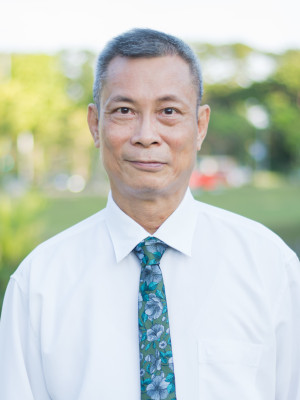

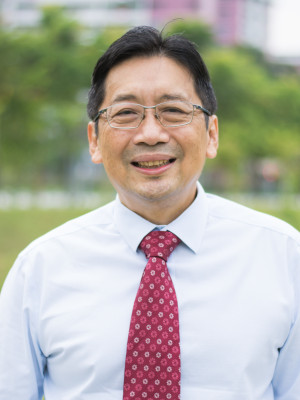

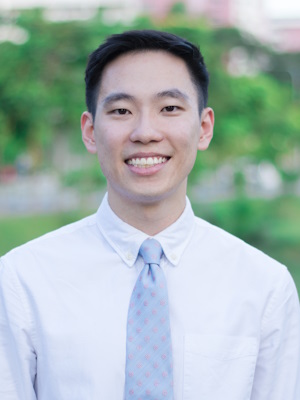





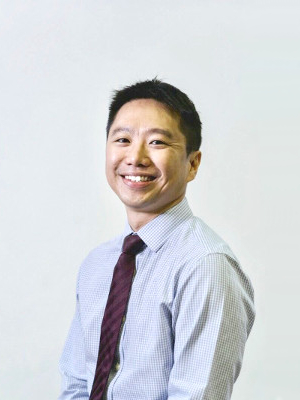

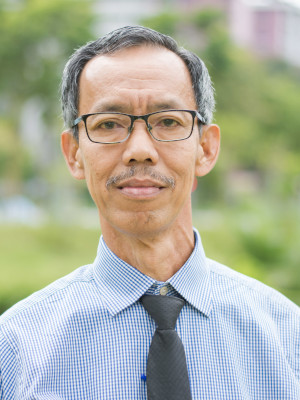
The Church is a society of God's chosen people with Christ as the Head. And in this covenant community, God has given to Jesus Christ the work of ruling over the Church. The words of Jesus Christ forms the foundation of the Church (1 Corinthians 3:11). His truth directs our doctrine and ethics. His precepts are our standards for holy conduct. Peter, in writing about the government of the Church, calls Jesus Christ the Shepherd and Bishop of the Church who watches over our souls (1 Peter 2:25).
But Peter also at the same time tells us that Christ has put certain men to be officers in the Church. This is the obvious teaching in 1 Peter 5:1-5. He calls these officers 'elders'. In the same passage, he informs us that the work of these elders is to 'feed the flock' (verse 2), 'taking the oversight thereof' (verse 2), but not as being 'lords over God's heritage' (verse 3). And in verse 5, the apostle exhorts the members of the Church to submit unto the 'elders'.
Likewise, Paul also stressed the importance of having certain officers to rule in the Church. In 1 Timothy 3 (click to read whole chapter) where he sets forth the qualifications of these rulers, he calls them 'bishops'. But in the same letter, he also designates them as 'elders' (1 Timothy 5:17). Like Peter, Paul describes their work as one of ruling over the Church.
The two different terms are used to highlight the different aspect of the office of elders. The word bishop means 'the one who watches over', and the word elder designates his seniority and maturity. But the two terms refer to the same office.
In the Reformed churches, the term 'elder' is used to designate the office bearer who is chosen to rule over the flock. He joins the minister in the Church as a fellow elder, taking oversight of the congregation. In larger churches there are usually more than two elders. But in every church, there must be more than one elder to rule over the Church. This is again a clear teaching of the Bible. When Paul urge Titus to remain in Crete to set the Church in order, he instructed him to 'appoint elders in every city'. Also the passage in 1 Peter 5 (click to read whole chapter), Peter spoke of 'elders' in the plural. In his farewell speech to the leaders of the church in Ephesus, Paul called the elders together.
The Reformed church is convinced that having more than one elder to rule in the Church is the teaching of the Bible. We call this practice the 'plurality of elders'. We are also convinced that all the elders in the Church share the same status and share of authority. By this, we mean that no one elder is above another fellow elder. Or no one elder may have a higher exercise of power over his fellow colleagues. We call this practice the 'parity of elders'. This means that all the elders are at par one with another in their rule over the Church. Again the passage in 1 Peter 5 is instructive. Although Peter was an apostle, he calls himself a 'fellow elder'. Also in the first synodical meeting of the Christian church in Acts 15, the apostles and the elders came together to consider the matters (verse 6).
This plurality and parity of the eldership is a unique emphasis of our Reformed Church government.
In today's modern church world, it is common to find women ministers and elders ruling in the Church. The Reformed Church resists this modern trend. We do so not because we despise the gift of women. In fact, we affirm that sisters in the Church may be active in children Sunday School and women's Bible study etc. But when we oppose women in office, we do so because of a clear mandate from Scripture. The Bible in 1 Corinthians 14:35 and especially 1 Timothy 2:11-14 forbids women to teach in the Church in any official capacity. By this, we mean that they may not assume an official position as office bearer in the Church, ruling over the congregation with a divine right and power.
In the same passage where Paul delineates for us the qualifications of elders, he also outlines the qualifications for deacons. Although the office of deacons is a separate office, they are nevertheless fellow officers with the elders appointed also to care for the well-being of congregation.
The word 'deacon' is derived from a Greek word that carries the meaning of 'service'. A deacon in the Reformed Church is one who serves alongside the elders in the Church.
The origin of this office is found in Acts 6 (click to read whole chapter). The church brought a complaint to the apostles that the Grecian widows were neglected in the daily work. The apostles' responded by directing the Church to select seven men whom they in turn may appoint to 'serve tables' and care for the widows. The apostles appointed these seven 'servants' as the first New Testament deacons in order that they themselves may concentrate in the work of preaching and praying.
In Philippians 1:1 where Paul opens his letter to the Church in Philippi, he directs his greetings also to the 'bishops and deacons'. From this passage, together with the passage in 1 Timothy 3, we may gather that the office of deacons in the New Testament was indeed a formal institution.
Deacons are important in the Church. They are appointed so that the poor and needy may be provided for. They function in this office representing the Lord Jesus Christ. Deacons are not social workers handing out money to relieve the afflicted. In carrying out their work, they speak on behalf of Christ, proclaiming his mercies to the deprived and oppressed within and without the congregation.